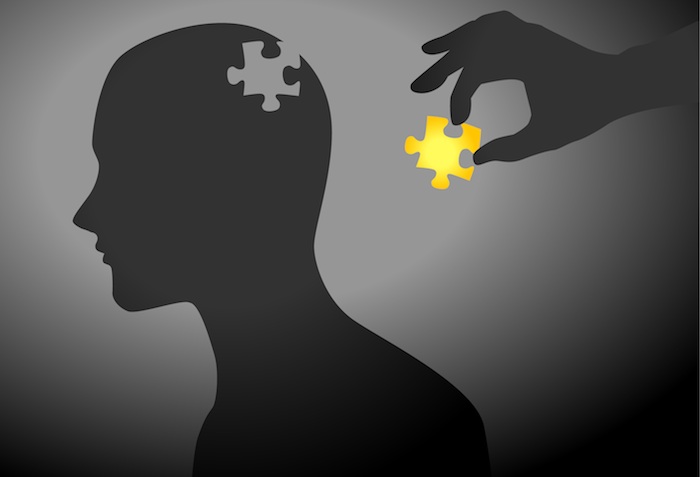ASICS STUDY SHOWS LINK BETWEEN REGULAR EXERCISE IN TEENAGE YEARS AND POSITIVE MENTAL WELLBEING IN ADULTHOOD

Today, ASICS is announcing the results of its second Global State of Mind Study, which reaffirms a positive link between physical exercise and mental wellbeing and uncovers a link between being physically active in teenage years and positive mental wellbeing in adulthood.
The study of over 26,000 respondents across 22 countries found that the more people exercise, the higher their State of Mind scores1. In the UK, people who are regularly active2 have an average State of Mind score of 61/100, while inactive3 people have a much lower State of Mind score of just 54/100.
Overall, the average State of Mind score in the UK is 61/100, 4 points lower than the global average of 65/100. In fact, British people are ranked as having one
of the lowest State of Mind scores across the globe, coming 17th out of the 22 countries surveyed. Levels of physical activity are also slightly below average, with 55% of the population exercising regularly compared to the global average of 56%.
What’s more, the study uncovered that being physically active in your teenage years directly impacts your mind later in life. Participants who engaged in exercise
throughout their adolescence report higher activity levels and State of Mind scores as adults. The findings indicate that remaining active as a teenager is key to establishing good exercise habits that last into adulthood and positively impact adult mental
wellbeing.
In fact, the study was able to pinpoint the ages of 15-17 as the most critical years for staying active and when dropping out of exercise significantly
affects your mental state for years to come. In the UK, those who regularly exercised at 15-17 years old have an average State of Mind score of 62/100 in adulthood, whereas those who were not active during those years have a score of 58/100.
In comparison, respondents who dropped out of exercise before the age of 15 display the lowest activity levels and lowest State of Mind scores in adulthood. Globally,
30% are still inactive as adults and they are shown to be 11% less focused, 10% less confident, 10% less calm and 10% less composed compared to those who were able to exercise throughout adolescence.
In fact, every year a teenager remained engaged in regular exercise is associated with improved State of Mind scores in adulthood. Globally, those who stopped
exercising before the age of 15 display an average State of Mind score 15% lower than the global average, while a decline in physical activity at 16-17 and before the age of 22 reduced their average scores by 13% and 6% respectively.
Worryingly, the study also uncovered an exercise generation gap, with younger generations being increasingly less active, impacting their State of Mind score. In the UK, over half (55%) of the Silent Generation (aged 78+) said they were active daily in their early childhood, compared to 35% of Millennials (aged 28-42) and just 21% of Gen Z (aged 18-27), showing a concerning trend of younger generations being less active and dropping out of physical activity earlier than the generations before them. Gen Zs in the UK have a significantly lower State of Mind score of 55/100, in comparison to Baby Boomers’ 68/100 and the Silent Generation’s 69/100.
Professor Brendon Stubbs, a leading researcher in exercise
and mental health from King’s College London, said: “It is worrying to see this decline in activity levels from younger respondents at
such a critical age, particularly as the study uncovered an association with lower wellbeing in adulthood”.
Gen Zs across the world are already exhibiting the lowest State of Mind scores in comparison to the Silent Generation, so this could be hugely impactful for future mental wellbeing across the world.”
Gary Raucher, Executive Vice President, ASICS EMEA said:
“ASICS was founded on the belief that sport and exercise benefit not only the body, but also the mind. It’s why we’re called ASICS: ‘Anima Sana
in Corpore Sano’ or ‘Sound Mind in a Sound Body’. The results of our second global State of Mind Study show how important it is that young people stay active and the impact this can have on their minds for years to come. At ASICS, we’re committed to supporting
and inspiring people to move for positive mental wellbeing throughout their lifetime.”
Hayley Jarvis, Head of Physical Activity for Mind, said: “These results are concerning, especially as the mental health of young people is worsening, with
one in five children and young people experiencing mental health problems.
With 50% of common mental health problems experienced before the age of 14 and 75% by the age of 24, our teenage years play a crucial role in laying the foundations for later life. Movement can play an important role in helping us all to stay well, reducing the risk of depression between 20-30%. We hope that through our work with ASICS, we see more teenagers remaining engaged in regular exercise, which will hopefully improve their overall mental wellbeing for now and years to come.”



